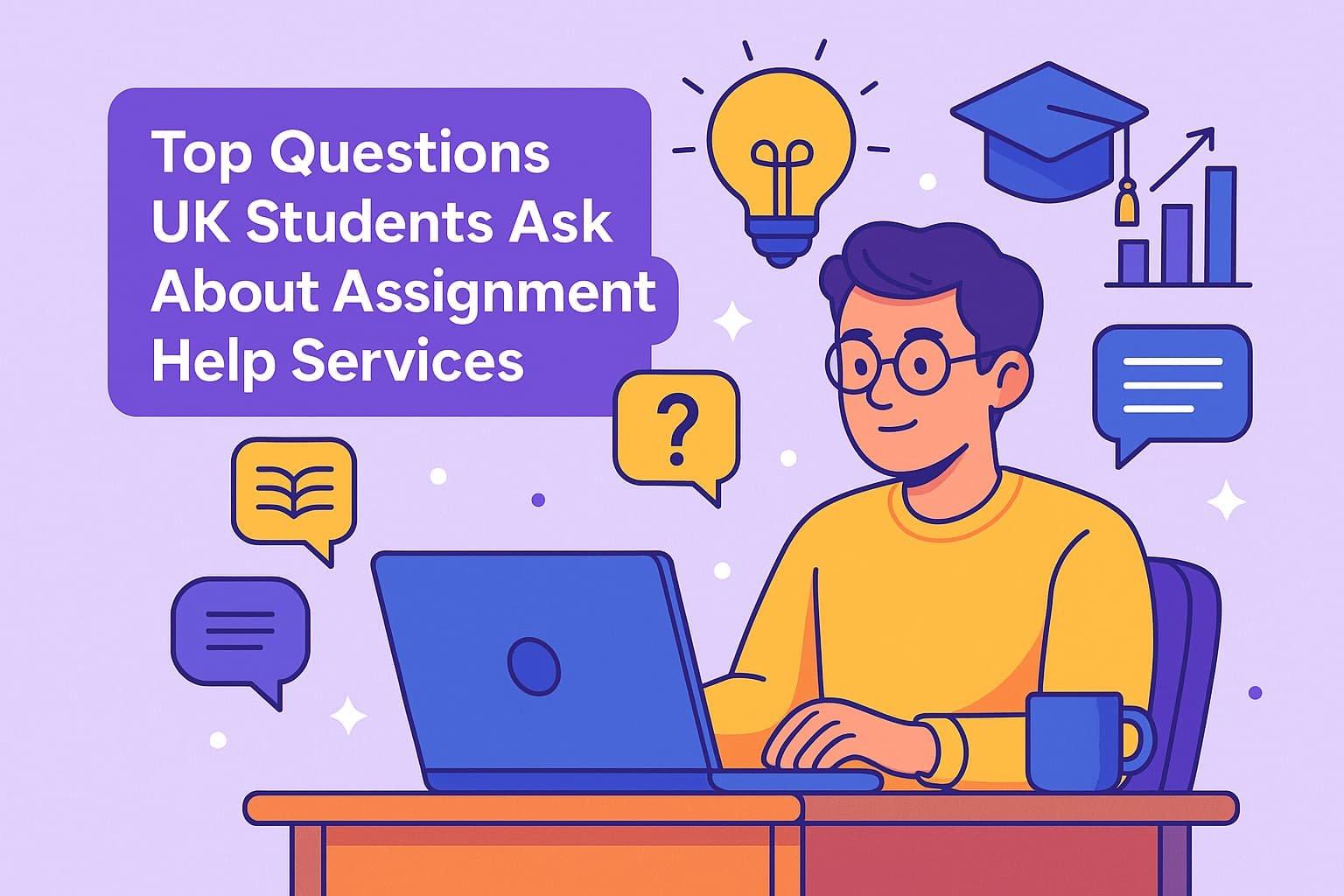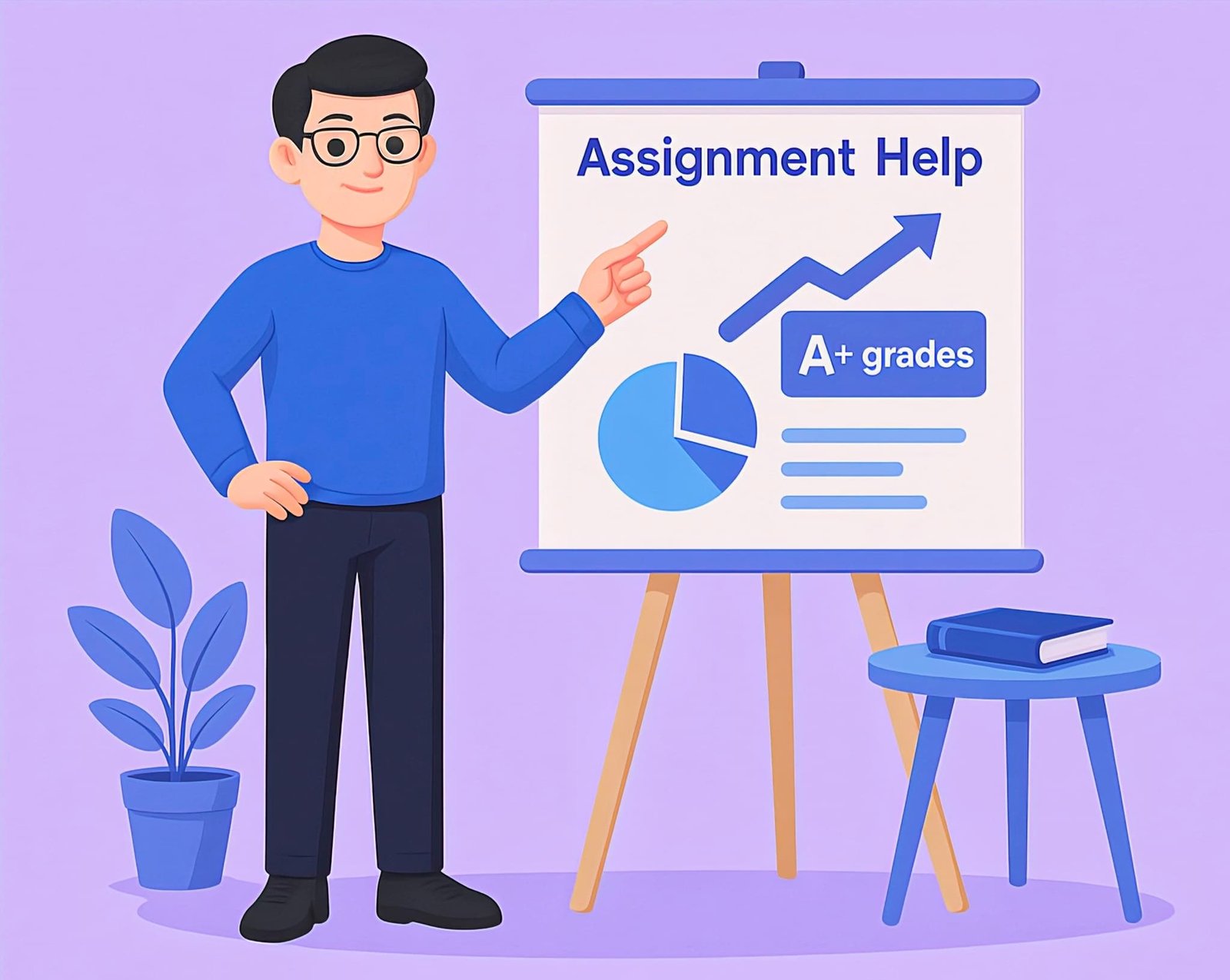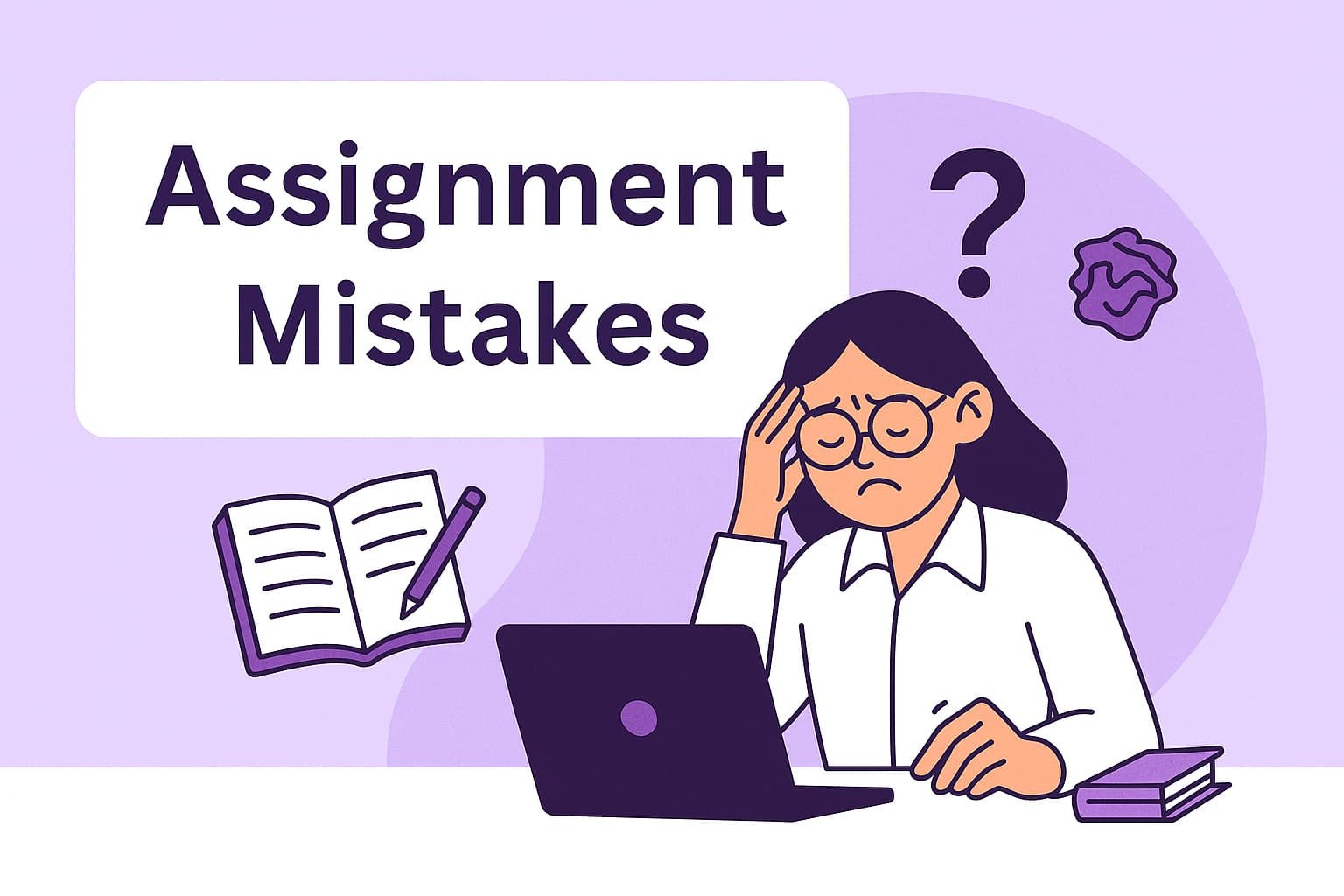University life in the UK is demanding. From intense lectures to strict deadlines, students often find themselves under immense pressure, especially when assignments begin to accumulate. It is no surprise that a significant number of learners, even those studying at top institutions such as UCL, Manchester, or King’s College London, end up making easily avoidable mistakes in their coursework. These mistakes, often minor in isolation, can collectively reduce grades, impact academic confidence, and affect future opportunities.
This guide explores the top ten most common mistakes UK students make in their assignments and provides practical, effective strategies to avoid them. Each point is based on real academic experiences, tutor feedback, and insights from thousands of successful student consultations. Whether you are an undergraduate in your first year or a postgraduate managing dissertation deadlines, the insights here will improve your academic performance significantly.
1. Misinterpreting the Assignment Question
A surprisingly large number of students underperform simply because they misunderstood the assignment question. In UK academia, the wording of an assignment prompt carries significant importance. Instructional verbs such as “critically evaluate,” “discuss,” or “analyse” each demand a distinct response. A student might conduct impressive research but lose marks for describing rather than evaluating.
Misinterpretation also occurs when students ignore specific contextual clues embedded in the brief. For example, if a question requires “an assessment of the impact of Brexit on UK SMEs,” the focus must remain on small and medium-sized enterprises within the UK, not on the global implications of Brexit.
To avoid this mistake, begin by breaking down the question into parts. Identify the topic, the task, and the required scope. Seek clarification from tutors early on or use expert guidance. Services such as live assignment support from our academic team are designed specifically to help students interpret briefs accurately.
2. Poor Planning and Weak Structure
Many students underestimate the importance of planning. Diving straight into writing without a clear structure often leads to confusion, repetition, or loss of focus. An effective academic assignment should include a clear introduction, well-organised main body, and a concise conclusion.
A strong introduction sets out the argument and scope. Each paragraph in the main body should present a single point, supported by evidence, and contribute to the overall argument. The conclusion should not introduce new ideas but must summarise the main points and provide a closing judgement.
Planning helps maintain logical flow. Use outlines, essay plans, or mind maps to arrange ideas before writing. At Urgent Assignment Help London, we often prepare custom outlines for students who feel overwhelmed by where to start.
3. Failing to Reference Correctly
Incorrect referencing is one of the most common reasons students lose marks. UK universities adhere to specific referencing styles, such as Harvard, APA, or OSCOLA. Mistakes range from missing in-text citations to incorrect formatting in the bibliography.
Referencing is not only about avoiding plagiarism; it also shows the academic foundation of your argument. Poor referencing reflects carelessness and can trigger suspicion regarding academic integrity.
To prevent these errors, students should familiarise themselves with the referencing style required by their course. Use referencing tools like Mendeley or Zotero to manage sources but review everything manually before submission. At Urgent Assignment Help, we provide thorough referencing checks to ensure formatting and accuracy align with your university’s guidelines.
4. Plagiarism and Unedited AI Content
With universities increasingly using Turnitin and AI detectors, the risks associated with copying or misusing content are higher than ever. Many students now rely on AI tools such as ChatGPT, thinking minor edits will make their work original. Unfortunately, AI-generated patterns are detectable, and content that lacks paraphrasing or academic grounding often triggers red flags.
Academic misconduct can result in severe consequences, including grade penalties and formal investigations. The issue is not the use of AI itself, but the uncritical submission of AI-generated output as original student work.
Use AI tools for research assistance or drafting ideas, but always rewrite content in your own words and support claims with credible sources. If in doubt, our team offers AI-detection testing and manual rewriting services to ensure your assignments are safe and unique.
5. Ignoring the Marking Criteria
Every assignment in a UK university is accompanied by a marking rubric or set of assessment criteria. These specify what markers are looking for in terms of understanding, analysis, structure, referencing, and written expression. Yet many students never refer to this document after downloading their assignment brief.
Ignoring the rubric is like sitting an exam without knowing the marking scheme. Students may write strong content but lose marks for failing to demonstrate critical thinking, integrate sources, or follow the specified structure.
The solution is straightforward. Print the rubric and check it during planning, drafting, and editing. Use it as a checklist to ensure your work satisfies each criterion. Our writers often structure assignments to align precisely with marking rubrics, helping students maximise their scores.
6. Rushing Work at the Last Minute
Time management is a major challenge for university students. Between part-time jobs, lectures, and personal obligations, many delay starting their assignments until the deadline is near. This often results in rushed submissions, poor research, and minimal editing.
Assignments completed in haste tend to be shallow, disorganised, and riddled with errors. They also increase stress and reduce the opportunity to receive feedback or make improvements before submission.
To combat this, create an assignment calendar with deadlines and writing stages. Begin your work in small stages rather than attempting to complete everything in one sitting. If you are short on time, consider our urgent support service, which provides fast and high-quality assistance even within tight deadlines.
7. Overdependence on ChatGPT Without Editing
The convenience of AI tools has encouraged many students to rely on ChatGPT or similar platforms to produce assignments. However, content generated by AI often lacks academic tone, critical insight, and accurate referencing. It may also contain outdated information or fabricated sources.
AI-generated content can be useful during brainstorming or drafting, but it must be reviewed, edited, and supplemented with scholarly sources. Universities expect independent thought, contextual understanding, and original expression.
Students should use AI as an assistant rather than a substitute. At Urgent Assignment Help, we convert raw AI drafts into polished, academic-standard assignments through manual rewriting and expert editing.
8. Insufficient Critical Analysis
UK universities place a strong emphasis on critical thinking. Simply summarising existing literature or describing facts does not meet the standard expected at undergraduate or postgraduate level. Assignments must evaluate arguments, explore counterpoints, and provide well-supported conclusions.
Students who fail to analyse critically often score in the lower bands, even if their work is well-structured and properly referenced. The ability to engage with differing perspectives, identify limitations, and make justified arguments is essential.
To improve critical analysis, students should practice questioning assumptions, comparing viewpoints, and relating theory to practice. Techniques such as PEEL (Point, Evidence, Explanation, Link) paragraphs can enhance analytical writing.
9. Neglecting Proofreading and Editing
Even high-quality content can be undermined by poor grammar, spelling errors, or awkward phrasing. Many students complete their assignments and submit them immediately, without taking time to review their work properly.
Proofreading is vital not only for correcting mistakes but also for improving clarity, coherence, and flow. Reading aloud, checking sentence structure, and ensuring consistency in terminology can significantly enhance the readability of your work.
For those who find editing difficult, our professional proofreading service offers detailed feedback and corrections that elevate your assignment to the highest academic standard.
10. Submitting Without Feedback or Review
Submitting assignments without any form of external review is a missed opportunity. Feedback from peers, tutors, or professional reviewers can identify errors, suggest improvements, and ensure that your assignment meets expectations.
Students may avoid seeking feedback due to time constraints or fear of criticism. However, the benefits are substantial. Even a short review can highlight structural issues, clarify arguments, and correct overlooked mistakes.
Urgent Assignment Help offers a pre-submission review service that simulates tutor marking. This service has helped hundreds of students boost their final grades by identifying and addressing weaknesses before submission.
Conclusion: Master the Process, Maximise Your Results
Every student is capable of producing high-quality assignments. The key is understanding the common pitfalls and actively avoiding them. From interpreting the question accurately to polishing the final draft, each step contributes to your academic success.
These ten mistakes are not signs of failure, but opportunities to improve. With better planning, awareness, and support, you can transform your writing from average to exceptional.
At Urgent Assignment Help, we provide tailored academic support for students across the UK. Whether you need assistance with planning, writing, editing, or referencing, our experts are here to help. We specialise in urgent assignments, full dissertations, research proposals, and chapter-by-chapter support — all delivered with integrity, precision, and complete confidentiality.
Common Questions UK Students Ask About Assignment Writing
1. Can I get assignment help last minute in the UK if my deadline is tonight?
Yes, our urgent assignment help UK service delivers expert-written work even at the last minute. Whether your assignment is due in a few hours or overnight, we’ve got you covered with fast, trusted academic support.
2. Will the assignment be written based on my university brief and academic level?
Absolutely. We write every assignment from scratch based on your university guidelines, academic level, and marking rubric — no prewritten templates or reused content.
3. How can I avoid plagiarism or Turnitin problems with assignment help?
All content is original, manually written, and checked using premium plagiarism tools. You also receive a full Turnitin-safe report for peace of mind and academic security.
4. Do you follow Harvard, APA, OSCOLA and other referencing styles correctly?
Yes, we accurately use all major referencing styles including Harvard, APA, MLA, OSCOLA, and Chicago. Referencing is included in every order at no extra cost.
5. Can I order dissertation help chapter by chapter for UK universities?
Yes. Our dissertation help UK service is flexible — you can order your proposal, literature review, methodology, findings, or full dissertation with deadlines that suit your academic timeline.
6. Is assignment help legal in the UK for university students?
Yes, using assignment help in the UK is legal when used for educational purposes. Our services are fully compliant with university guidelines and meant to support your learning.
7. Where can I find help for uni assignments in the UK?
You can find safe, professional help for your university assignments right here. We specialise in guiding UK students through essays, reports, coursework, and dissertations with 24/7 support.
8. Can I pay in instalments for long academic projects like dissertations?
Yes, we allow milestone-based payments for larger projects. Pay chapter by chapter and review your work along the way before moving to the next stage.
9. Do UK students get native English academic writers for assignments?
Yes. All our writers are UK-based, fluent in academic English, and experienced in delivering work that meets UK university standards. We never outsource to non-native freelancers.
10. What if I am not satisfied with the assignment I receive?
If anything is missing or unclear, we offer free revisions. We aim to provide the best academic help for students in the UK by ensuring every order meets expectations.
11. Can I trust your service to keep my information and documents confidential?
Yes. Our privacy policies guarantee your information, files, and contact details remain secure and never shared with any third party. Your trust is our priority.
12. What subjects and academic areas do you provide support in?
We cover over 50 subjects including Business, Nursing, Law, IT, Psychology, Engineering, and Education — making us a one-stop platform for students seeking the best academic help in the UK.
13. Do you provide proofreading and editing for assignments already written?
Yes. If you have already written your assignment, we offer professional editing, referencing, and proofreading to enhance grammar, structure, and academic tone.



